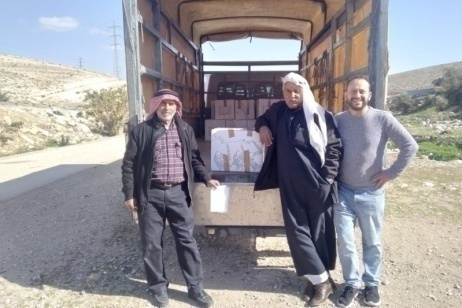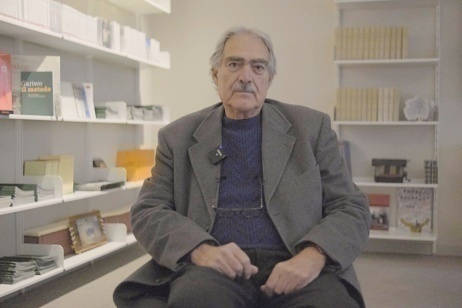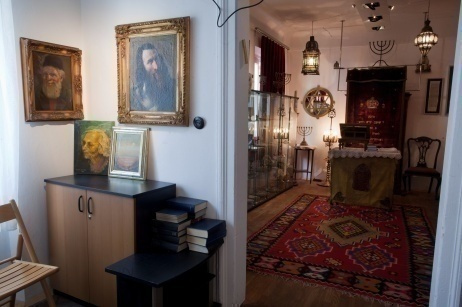
Sen. Lucio Romano
On past 26 July, the Chamber of deputies passed the draft bill for the establishment in Italy of a Day in memory of the Righteous of the humanity.
Through this measure, which is currently being examined by the Senate, our country will officially join the European Day of the Righteous – 6 March, that was established by the European Parliament on 10 May 2012.
In order to discuss this law and the importance of remembering the figures of the Righteous, a meeting was held on 17 October at 10 o’ clock in the premises of the Senate – in the Hall of the Istituto di S. Maria in Aquiro – upon initiative of Senator Lucio Romano and Hon. Deputy Milena Santerini. The conference was entitled as I Giusti dell’Umanità (The Righteous of the Humanity) and it witnessed the participation of Senators Lucio Romano, Rosa Maria De Giorgi, Salvatore Torrisi, Andrea Marcucci, Bruno Mancuso as well as of Gabriele Nissim, Milena Santerini, Gabriele Albertini, Anna Foa, Emilio Barbarani and Pietro Kuciukian.
We reached Senator Lucio Romano - Vicepresident of the Commission for EU Policies and member of the Commission for Constitutional Affairs - to discuss the establishment of the Day in memory of the Righteous, the values which these examples are the bringers of, and the importance of responsibility in one’s time.
After the approval from the Commission for Constitutional Affairs of the Chamber of deputies, the draft law to set up a Day in memory of the Righteous of the humanity is now being discussed at the Senate. What are the deadlines and the next passages necessary to pass this bill?
As regards the deadlines are concerned, the good news is that the Senate’s First Commission for Constitutional Affairs has put in, before the presidency of the Senate, a request to adopt the draft law to apply the deliberative ruling, i.e. to be able and vote the bill within the Commission, thus avoiding the passage from the Assembly for the final approval and therefore saving time. I think this feature is very important to speed up a procedure, which otherwise, due to the Senate’s schedule, might be too lengthy for a legislative term that is coming to an end.
Do you think there may be any objections against this draft law? Or do you think there can bea united front about this project?
I reasonably think that inside the Constitutional Affairs Commission there is a broad agreement, as precisely the request for a deliberative procedure has shown. Any possible political differences will be overcome thanks to the unanimous support to an initiative aimed at supporting the memory of many Righteous people who, in different areas and under various circumstances, have given a concrete and heroic example not of belonging, but of their common force as rescuers and the sharing of values, which pass on a sense of social education and democracy.
After the establishment of the Day of the Righteous at the European level, what does the fact that Italy is the first country to create this recurrence at the domestic level mean, also in the light of the fact that our country is in the first line at organizing activities to mark International Holocaust Remembrance Day?
I believe this has a great value not only of testimony, but also of social and political culture, also because Italy is the most overexposed country in Europe in relation with multiple issues, certainly not least the one of welcoming and integrating migrants. The draft law reflects the particular attention the Italian population pays to recent history and the tragedy of Second World War, but even more generally to suffering and pain and to a world, which is still nowadays marked by the denial of the basic human rights. The first of which is the right to life and freedom.
The key point of the new law will be education. What do you think is the most important cultural battle now, to accomplish both at schools and within the public opinion?
It is essential to represent memory not only by connecting it to a given historical era, but also enriching it with the many other memories, present and widespread in our time, which shall involve the information and education of Italian citizens. This is why I believe now the educational and cultural dimension is the necessary foundation to make people aware that suffering has no political color nor geographic belonging, and the death of so many people compels every one of us to question the current reality. Everyone must take up the burden of responsibility in one’s time. We need to start from the responsibility of the individual in order to make it a responsibility for the community.
In the light of this, in the face of the challenges of our time, do you think that bringing about the Righteous and remembering that the example of just one man can make the difference between good and evil can then strengthen not only the individual countries, but also Europe itself and its founding values?
Of course it can. The dimension of the Righteous is not confined within national borders, but it is rather the evocation of a personal moral law and an ethical and social imperative. Remembering, precisely on Righteous Memorial Day, the tales of those, alone, have chosen not to turn a blind eye in the face of violence, can provide a concrete example of how, starting from individuals, we can give rise – at the European level and not only there – to the re birth of a network of solidarity and proximity that shall unite moral friends. I believe this feature bears a certain significant to recognize the reason behind the establishment of the Day of the Righteous: it is not simply to add to the calendar another Day of Remembrance.
In Italy perhaps there are even too many recurrences to celebrate, which, one may think, for the most varied reasons might thwart the recurrence of 6 March. As it was remembered, perfectly on point, “the plurality of memories is not a limit, but a wealth, because it passes on the complexity of human history”. The Day of the Righteous has a great significance: it is characterised by an inclusive memory that, precisely, does not exclude the others but rather comprises them.
6 March puts together and recollects, on the basis of an essential feeling like accomplishing good, many tales of men and women who have committed and are still committing to rescuing the persecuted, defending human dignity and witnessing to the truth not to forget. Here lies the true force of the “Day in memory of the Righteous of Humanity”, its pedagogical and educational function. It is not about a formal commemoration. Its goal is not to cause clash among memories or establish a hierarchy in human suffering, but rather the accomplishment of a community vision that shall be able to make the difference between good and evil.





